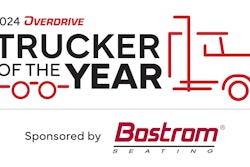Investment analysts, with their outsiders’ viewpoint, often have some good insight into our industry. Other insights aren’t quite so astute.
The Business Insider website, with its recent “Trucking running on fumes” analysis, offers this stark summary as an introduction to its commentary on rising fuel prices: Trucking is one of the most expedient, but also one of the most inefficient modes of freight transportation.
The conclusion is based on the fuel efficiency of rail, which is no secret, given the right context – commodity freight and rail’s limited access.
The analysis goes on to say “when fuel prices shift materially, it can cause retailers to begin rethinking their shipping priorities. Short-haul routes may still be a necessity, but when it comes to longer distance shipping, there are better alternatives.”
How often do you see retailers unloading their goods from rail lines behind their stores? Granted, some retail freight moves out of the factory via rail, but the bread and butter of rail is bulk, high-weight freight.
The American Trucking Associations notes most people are not aware that “trucks deliver 70 percent of all freight tonnage or that 80 percent of U.S. communities receive their goods exclusively by truck.” If trucking were so inefficient, that 70 percent would bleed off into railroads, cargo ships, airlines, rickshaw carts, whatever. But the figures cited by ATA have not changed significantly in many years.
As fuel prices continue to rise, Business Insider believes motor carriers will be faced with an awful dilemma, though again the logic seems off: “Passing on higher fuel costs in the form of fuel surcharges will eventually cause retailers to cut back on shipping. However, choosing NOT to pass on these higher costs will eat into profit margins.”
“Cut back on shipping”? “Choosing NOT to pass on these higher costs”? Even though diesel prices have quadrupled in the last 13 years or so, retailers have paid for whatever shipping they needed. Shipping costs, fuel surcharge costs – these have been passed along for years and will continue to be passed.
There is a relatively small amount of freight now moving by truck that could shift to rail if diesel rises much further. It’s doubtful there’s enough to have much impact overall on the trucking industry.











